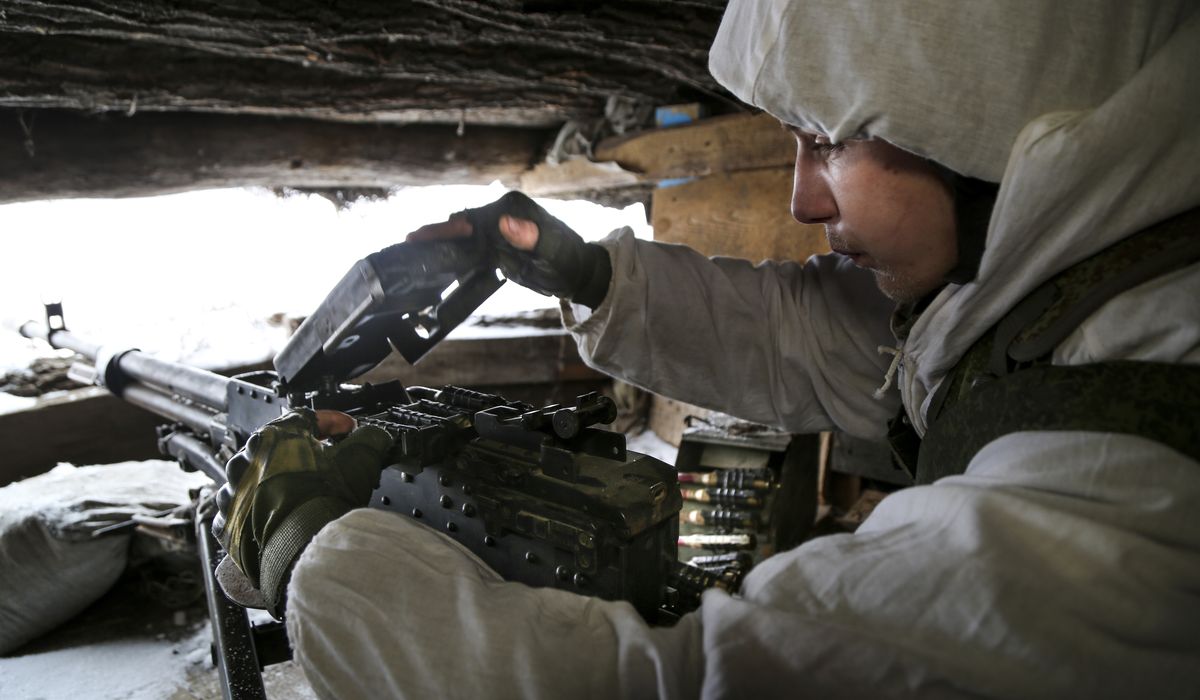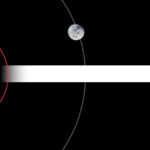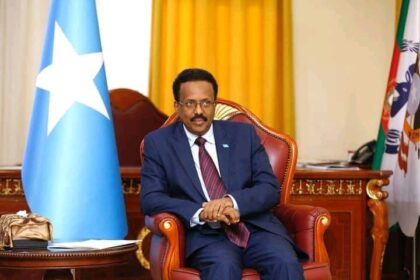
Time may be on Vladimir Putin’s side when it comes to Ukraine.
Foreign policy analysts say the Russian president gains a strategic edge by dragging out the military standoff. The ultimate goal, they say, is to exacerbate disagreement and divisions among the U.S. and its NATO allies and cast doubt on how effectively the West can respond if Russian tanks roll into Ukraine.
Western nations were showing such divisions beneath the surface on Monday, even as the Pentagon confirmed that it had put 8,500 troops on heightened alert status for potential deployment to the region and NATO sent more ships and fighter jets to Eastern Europe. President Biden acknowledged last week that a “minor incursion” by Russian forces into Ukraine could spark “a fight about what to do” within NATO.
The cold, calculating Mr. Putin is banking on such a fight, specialists say. Although the West has projected a mostly unified front in the face of Russian provocation, that unity could crack as time passes and the Kremlin’s saber-rattling gives way to a ground invasion.
“The strength of the unity comes from how scared everybody is,” said Jim Townsend, a deputy assistant secretary of defense for European and NATO policy during the Obama administration. “As time goes on, broadly, unity could falter. As time goes on, people could become disinterested in this.”
Mr. Putin “has more flexibility calling the shots on time. We’re reacting to him,” Mr. Townsend told The Washington Times in an interview Monday. “He’s dictating the march. … We could play for time, but he can play for time, too. In a way, he’s already playing for time now, stretching out some of these talks” with the West.
Western allies are united in defense of Ukraine’s territorial integrity and in rejecting Mr. Putin’s demand for a broad pullback of NATO forces across Eastern Europe. But Germany has a major pipeline project with Moscow hanging in the balance and historical reservations about military action abroad, France is pushing for a separate role for Europe and the EU in formulating strategy, and the small countries along Russia’s borders are noticeably more hawkish about confronting the Kremlin than are some countries farther west.
With more than 100,000 Russian forces now stationed along the country’s border with Ukraine, the U.S. and its NATO allies have warned Moscow that it will face severe consequences for any military action. The Biden administration has vowed to impose crushing economic sanctions should Mr. Putin order an invasion, and European nations have mostly been in lockstep with Washington on such unprecedented moves.
“If a single additional Russian force goes into Ukraine in an aggressive way … that would trigger a swift, a severe and a unified response from us and from Europe,” Secretary of State Antony Blinken told CNN on Sunday.
NATO on Monday announced several military moves in Eastern Europe. Denmark will send a frigate to the Baltic Sea, and Spain will send additional ships to join a NATO naval exercise, the alliance said. The Netherlands said it will send more F-35 fighter jets to the region. The Pentagon said it was putting more troops on notice to be ready to ship out if they need to quickly deploy to Europe.
“Our commitment to NATO is paramount right now,” Pentagon spokesman John Kirby told reporters. “This is about sending a strong message that we’re committed to NATO.”
Russian officials said NATO’s military buildup in Eastern Europe is to blame for soaring tensions.
“These actions and NATO’s increased activities near our borders cannot be ignored by our military, which is responsible for the security of our country,” Kremlin spokesman Dmitry Peskov said.
‘Divisions are in the open’
At the White House, Mr. Biden met virtually with top European officials, including NATO Secretary-General Jens Stoltenberg and the leaders of France, Germany, Britain and Poland.
Despite an attempt to project unity, the allies are showing signs of fissures.
Beyond Mr. Biden’s public gaffe about a looming “fight” among NATO members, French President Emmanuel Macron raised eyebrows late last week when he floated the idea of the European Union launching its own security dialogue with Moscow, presumably without the U.S. at the table.
After the State Department announced a drawdown of U.S. Embassy personnel and family from Kyiv last week, citing the deteriorating security situation, many European nations did not follow suit.
“We are not going to do the same thing” as the U.S., EU foreign policy chief Josep Borrell told reporters Monday.
Negotiations involving the U.S. and Russia, including last week’s meeting between Mr. Blinken and Russian Foreign Minister Sergey Lavrov, have failed to produce a resolution to the brewing crisis.
Mr. Putin does not need to consult or coordinate with anyone as he ramps up pressure on his smaller neighbor, but Mr. Biden and EU leaders are trying to coordinate policy among more than two dozen countries.
Germany has rejected calls to join the U.S., Britain and other NATO countries in sending arms and other lethal aid directly to the Ukrainian military, which is badly outnumbered and outgunned by the Russian force, one of the largest armies in the world. German officials denied press reports last week that they closed airspace to British aircraft delivering weapons to Ukraine, though the supply planes took a circuitous route.
Across Europe, there is a growing belief that Mr. Putin may be outmaneuvering the West by sparking endless speculation and uncertainty about what NATO would or wouldn’t do in response to a Russian invasion. Although an outright invasion could unite the West, actions short of that — including an engineered coup, a cyberattack or an official recognition by Moscow of new separatist enclaves inside Ukraine — would be a tougher call.
“Sanctions would probably be imposed, as they were before. But the main conclusion Moscow would draw from these discussions is that the West is divided,” Caroline de Gruyter, a columnist for the Dutch newspaper NRC Handelsblad, wrote Monday in a piece for Foreign Policy magazine. “Instead of producing strong deterrence, the West has done little more than reveal cracks everywhere. Divisions are in the open among members of the European Union, most of which are also NATO allies. Sometimes, divisions even appear within governments, such as in Germany.”
Indeed, German navy Vice Adm. Kay-Achim Schoenbach resigned over the weekend after publicly suggesting that Mr. Putin “deserved respect” in dealings with the West. Other European officials roundly rejected his comments, but they sparked questions about the long-term strength of anti-Russian unity among European nations.
More broadly, Germany has struggled with its newfound leadership role in the unfolding Russia-Ukraine crisis, Mr. Townsend said.
“I think they need to figure out a way to play a stronger role,” he said. “I’m afraid that Germany is adding to this image that maybe there’s not unity. Maybe there are fissures that the Russians can exploit. And I think that’s probably the danger here. I think the Russians see the Germans as wobbly. … They’re looking a bit weak, hand-wringing.”
• Mike Glenn contributed to this article, which is based in part on wire service reports.








